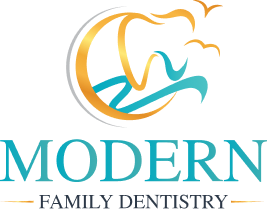
Address spaces resulting from the absence of 1 to 3 teeth.
Revitalize your mouth’s well-being and aesthetics with a dental bridge. This restoration involves a false tooth supported by dental implants, your natural teeth, or a blend of both. Commonly known as a ‘fixed partial denture,’ bridges are securely attached to your teeth, eliminating the need for removal during sleep or cleaning. Addressing tooth gaps holds significance beyond looks – it impacts your long-term oral health. The absence of teeth can hinder speech and eating, and neighboring teeth may shift in response to gaps.
Long-Lasting Benefits Of Dental Bridges
The absence of a tooth or multiple teeth can lead to self-consciousness and discomfort. Opting for a dental bridge not only restores the appearance and comfort of your smile but also delivers lasting advantages for your remaining teeth and the overall bone health of your mouth. To encapsulate, here are the benefits of a dental bridge:
Comfort
These immediate benefits are quite apparent as they impact us in the present. Regain a sense of normalcy in both appearance and sensation. Smile and eat with renewed confidence, recapturing the familiar and cherished smile you’ve missed. The discomfort from missing teeth can be discouraging, often causing challenges or pain while speaking or eating. Dental bridges provide a durable remedy for the discomfort caused by tooth loss, with the potential to last over ten years through diligent care.
Tooth health
Your teeth work together to maintain facial structure and alignment. Tooth gaps can disrupt your bite and lead to neighboring teeth shifting. A dental bridge prevents this shifting, lowering the risk of decay, periodontal disease, jaw discomfort, and TMJ disorder caused by misaligned teeth.
Bone health
Robust, well-maintained teeth promote strong jawbones. As our dental well-being declines, the health of the supporting bone and tissues also diminishes. By stabilizing your dental health through a dental bridge, you can impede the pace of bone loss stemming from missing teeth.
The Cost Of A Dental Bridge
The expense of a dental bridge can fluctuate significantly based on individual circumstances. Under a standard insurance plan, the cost usually ranges from approximately $800 to $1200 or more. If insurance isn’t a factor, a rough estimate for a bridge would be around $2000 to $3000 and beyond.
What factors contribute to the pricing of a dental bridge?
- The bridge type and its composition material
- The quantity of missing teeth
- The intricacy and location of the procedure
- The health of adjacent teeth
- Necessary supplies and equipment tailored to your treatment
Keep in mind that precise quotes cannot be given over the phone by any dental practice. Your requirements are as distinct as your smile. Speaking with a dentist and undergoing an oral examination is essential to explore treatment choices and obtain an accurate quote. If you’re covered by dental insurance, we’re pleased to provide you with a quote for submission. This way, you can determine your out-of-pocket expenses prior to making a decision.
Contact us today
to schedule an initial consultation & exam.
Your consultation will include an examination of everything from your teeth, gums and soft tissues to the shape and condition of your bite. Generally, we want to see how your whole mouth looks and functions. Before we plan your treatment we want to know everything about the health and aesthetic of your smile, and, most importantly, what you want to achieve so we can help you get there.
Frequently Asked Questions
A dental bridge is a restoration that replaces missing teeth by spanning the gap between adjacent teeth or dental implants. It consists of artificial teeth anchored securely in place.
The process is typically comfortable. Local anesthesia is used during the procedure to ensure minimal discomfort. Any mild discomfort afterward can often be managed with over-the-counter pain relievers.
With proper care, a dental bridge can last around 10-15 years or even longer. Regular oral hygiene and routine dental checkups contribute to its longevity.
Yes, dental bridges come in various types, including traditional bridges supported by adjacent natural teeth, cantilever bridges that anchor to a single adjacent tooth, and implant-supported bridges that rely on dental implants for support.
No, once you’ve adjusted to your new bridge, eating and speaking should feel natural. Dental bridges are designed to restore both functionality and aesthetics to your smile.

.png)




